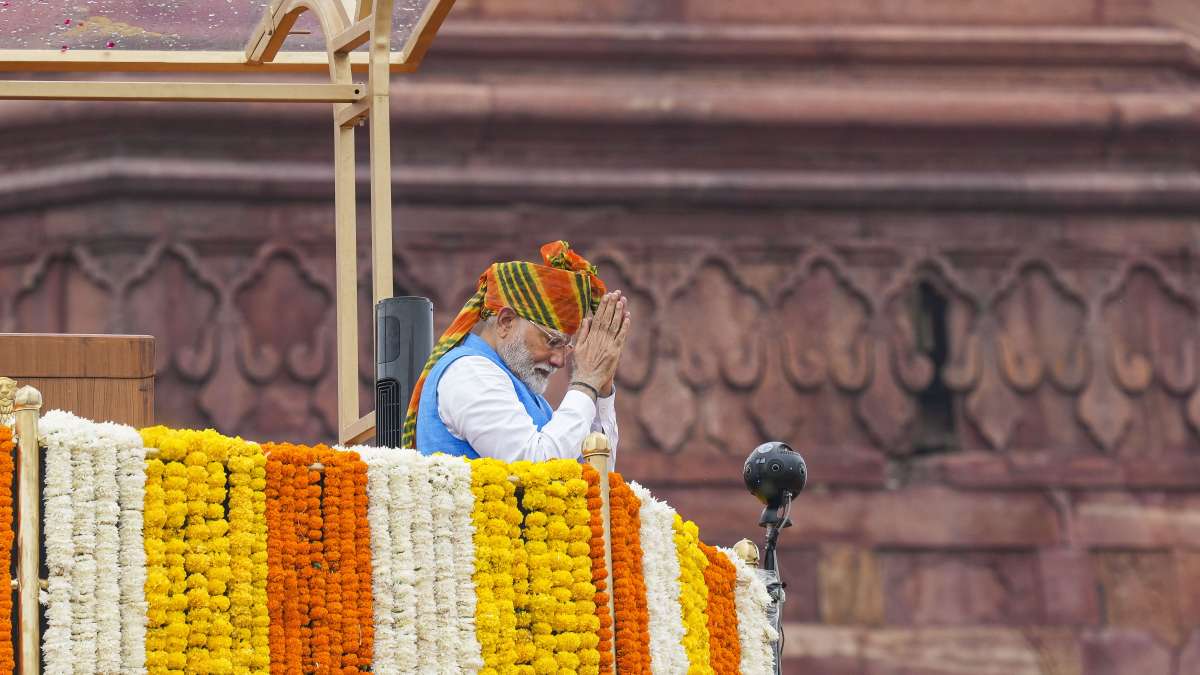


During the closing ceremony of the Rajasthan High Court's platinum jubilee celebrations in Jodhpur, Prime Minister Narendra Modi affirmed that the government is completely dedicated towards the strengthening of the justice system and national unity. During his speech on August 25, 2024, PM Modi highlighted the importance of repealing Article 370 and implementing the Citizenship Amendment Act (CAA),emphasizing their role in promoting harmony and empathy within India's judicial framework.
Article 370: A Milestone in Constitutional Integration
The Prime Minister commended the removal of Article 370 as a crucial step towards achieving true constitutional harmony in India. In August 2019, the Indian government abolished Article 370, eliminating the special status of Jammu and Kashmir and integrating it completely into the Indian Constitution.
He stated:
"Abrogation of Article 370 is an example of constitutional integration. An example of a humane law such as CAA is in front of us. On issues such as these, in the national interest, usual justice is something what our court judgements explicitly state. From lower to Supreme Court, on issues such as this, a nation first principle has been adopted."
PM Modi praised the judiciary's support in upholding the CAA and similar measures that align with the nation-first principle. His remarks reflect the government's stance that such laws are not only legally sound but also morally justified in protecting vulnerable populations.
Beyond these specific laws, the Prime Minister emphasized the broader need for simplifying India's justice delivery system. He pointed out that procedural complexities often hinder access to justice and called for reforms to make the legal process more straightforward and accessible.
"Access to justice is always simple and straight but procedures complicate it. We should strive to simplify it. We have completely repealed all colonial laws. After so many years of independence, we adopted Bharatiya Nyaya Sanhita in place of the Indian Penal Code (IPC). Justice in place of penalty is the core thought behind Bharatiya Nyaya Sanhita. BNS frees us from the shackles of colonialism," PM Modi stated.
The Prime Minister's comments on the Bharatiya Nyaya Sanhita (BNS) signal a significant shift in India’s legal approach, replacing the colonial-era Indian Penal Code with a more justice-oriented framework.
PM Modi emphasized the technological progress in modernizing India's judiciary alongside legislative reforms. He observed that more than 18,000 courts nationwide have been digitalized, with over 3,000 court buildings and 1,200 prisons now having video conferencing capabilities.
These changes are included in the government's larger initiative to improve effectiveness and openness in the legal system, guaranteeing that justice is not only provided but also reachable for everyone.
Call for Uniform Civil Code
PM Modi in his speech has streesed on the importance of introducing Uniform Civil Code(UCC) in India and clarified the strong support and backing of the government and the judiciary.
"Regarding national integration, PM Modi stated that the judiciary's stance increases the common man's confidence in the judiciary, supporting the notion that a UCC would enhance unity in India's varied legal system."
Conclusion: A Vision for a Unified and Just India
Prime Minister Narendra Modi highlighted the government's dedication to constitutional integration, humane laws, and judicial modernization in his address at the Rajasthan High Court's platinum jubilee celebrations. PM Modi is promoting the removal of Article 370 and the CAA, as well as advocating for a Uniform Civil Code, in order to create a fair and united India with a legal system that benefits all citizens. As India keeps progressing, these projects show a vision for the future focusing on unity, legal changes, and caring leadership.
TAGS: PM Modi Article 370 abrogation constitutional integration Citizenship Amendment Act (CAA) humane law Rajasthan High Court Bharatiya Nyaya Sanhita (BNS) judicial modernization Uniform Civil Code (UCC) justice delivery system.